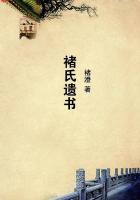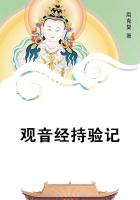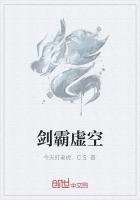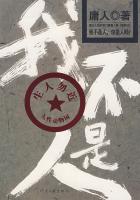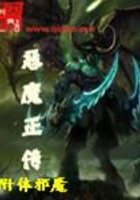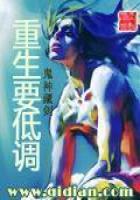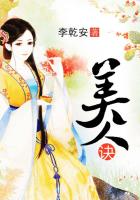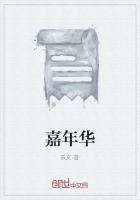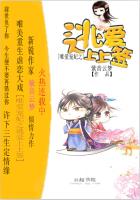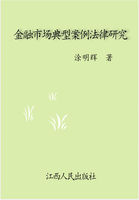They were strong men without fear of death. They spoke a language which left no doubt as to the future of unrepentant sinners. The Teutons were deeply impressed. They still had a deep respect for the wisdom of the ancient city of Rome.
Those men were Romans. They probably spoke the truth.
Soon the Christian missionary became a power in the savage regions of the Teutons and the Franks. Half a dozen missionaries were as valuable as a whole regiment of soldiers.
The Emperors began to understand that the Christian might be of great use to them. In some of the provinces they were given equal rights with those who remained faithful to the old gods. The great change however came during the last half of the fourth century.
Constantine, sometimes (Heaven knows why) called Constantine the Great, was emperor. He was a terrible ruffian, but people of tender qualities could hardly hope to survive in that hard-fighting age. During a long and checkered career, Constantine had experienced many ups and downs. Once, when almost defeated by his enemies, he thought that he would try the power of this new Asiatic deity of whom everybody was talking. He promised that he too would become a Christian if he were successful in the coming battle. He won the victory and thereafter he was convinced of the power of the Christian God and allowed himself to be baptised.
From that moment on, the Christian church was officially recognised and this greatly strengthened the position of the new faith.
But the Christians still formed a very small minority of all the people, (not more than five or six percent,) and in order to win, they were forced to refuse all compromise. The old gods must be destroyed. For a short spell the emperor Julian, a lover of Greek wisdom, managed to save the pagan Gods from further destruction. But Julian died of his wounds during a campaign in Persia and his successor Jovian re-established the church in all its glory. One after the other the doors of the ancient temples were then closed. Then came the emperor Justinian (who built the church of Saint Sophia in Constantinople), who discontinued the school of philosophy at Athens which had been founded by Plato.
That was the end of the old Greek world, in which man had been allowed to think his own thoughts and dream his own dreams according to his desires. The somewhat vague rules of conduct of the philosophers had proved a poor compass by which to steer the ship of life after a deluge of savagery and ignorance had swept away the established order of things.
There was need of something more positive and more definite.
This the Church provided.
During an age when nothing was certain, the church stood like a rock and never receded from those principles which it held to be true and sacred. This steadfast courage gained the admiration of the multitudes and carried the church of Rome safely through the difficulties which destroyed the Roman state.
There was however, a certain element of luck in the final success of the Christian faith. After the disappearance of Theodoric's Roman-Gothic kingdom, in the fifth century, Italy was comparatively free from foreign invasion. The Lombards and Saxons and Slavs who succeeded the Goths were weak and backward tribes. Under those circumstances it was possible for the bishops of Rome to maintain the independence of their city. Soon the remnants of the empire, scattered throughout the peninsula, recognised the Dukes of Rome (or bishops) as their political and spiritual rulers.
The stage was set for the appearance of a strong man.
He came in the year 590 and his name was Gregory. He belonged to the ruling classes of ancient Rome, and he had been "prefect" or mayor of the city. Then he had become a monk and a bishop and finally, and much against his will, (for he wanted to be a missionary and preach Christianity to the heathen of England,) he had been dragged to the Church of Saint Peter to be made Pope. He ruled only fourteen years but when he died the Christian world of western Europe had officially recognised the bishops of Rome, the Popes, as the head of the entire church.
This power, however, did not extend to the east. In Constantinople the Emperors continued the old custom which had recognised the successors of Augustus and Tiberius both as head of the government and as High Priest of the Established Religion. In the year 1453 the eastern Roman Empire was conquered by the Turks. Constantinople was taken, and Constantine Paleologue, the last Roman Emperor, was killed on the steps of the Church of the Holy Sophia.
A few years before, Zoe, the daughter of his brother Thomas, had married Ivan III of Russia. In this way did the grand-dukes of Moscow fall heir to the traditions of Constantinople.
The double-eagle of old Byzantium (reminiscent of the days when Rome had been divided into an eastern and a western part) became the coat of arms of modern Russia.
The Tsar who had been merely the first of the Russian nobles, assumed the aloofness and the dignity of a Roman emperor before whom all subjects, both high and low, were inconsiderable slaves.
The court was refashioned after the oriental pattern which the eastern Emperors had imported from Asia and from Egypt and which (so they flattered themselves) resembled the court of Alexander the Great. This strange inheritance which the dying Byzantine Empire bequeathed to an unsuspecting world continued to live with great vigour for six more centuries, amidst the vast plains of Russia. The last man to wear the crown with the double eagle of Constantinople, Tsar Nicholas, was murdered only the other day, so to speak. His body was thrown into a well. His son and his daughters were all killed.
All his ancient rights and prerogatives were abolished, and the church was reduced to the position which it had held in Rome before the days of Constantine.
The eastern church however fared very differently, as we shall see in the next chapter when the whole Christian world is going to be threatened with destruction by the rival creed of an Arab camel-driver.


